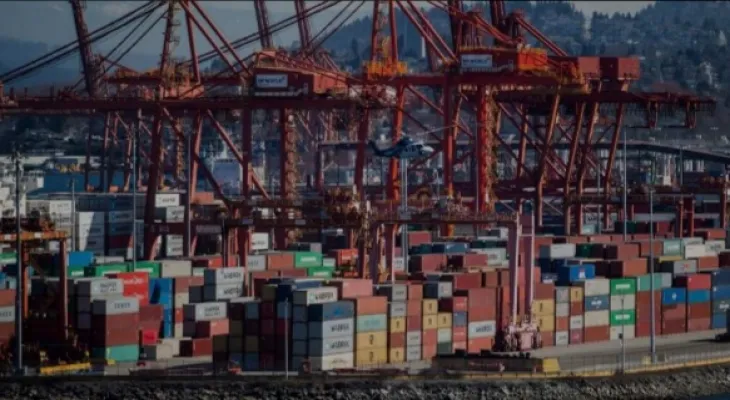Search here
Newspaper
Search here

Arab Canada News
News

Published: August 5, 2023
The dockworkers' union in British Columbia voted in favor of a new contract negotiated with the employer, putting an end to months of uncertainty at the province's ports.
In a brief statement on Friday evening, the International Warehouse Union of Canada said that 74.66 percent of its members voted in favor of the preliminary agreement, which was reached last weekend with the assistance of the Canadian Industrial Relations Board.
The BC Maritime Employers Association - representing employers in the negotiations - promoted the new agreement's increases in wages, benefits, and training for workers in a statement responding to the vote on its website Friday night.
The association also praised the "certainty and stability" that the new deal will bring.
The statement read: "BCMEA recognizes and regrets the deep implications this labor disruption has had on the national economy, workers, businesses, and ultimately, all Canadians who rely on an effective and reliable supply chain." "All stakeholders in the supply chain must now work together to ensure we do not experience such disruptions again."
The vote on Friday to approve the new agreement with BCMEA comes after ILWU Canada rejected a previous deal twice.
This very deal - which was drafted by a mediator at the request of Federal Labor Minister Seamus O'Regan - was recommended for ratification by union leadership, which initially rejected it without a membership vote on July 18.
The initial preliminary agreement ended a 13-day strike that froze the movement of goods in and out of 30 port terminals and other sites across British Columbia.
Business groups estimated that the strike cost the Canadian economy billions of dollars in trade.
Shortly after announcing the vote on Friday evening, one group - the Greater Vancouver Board of Trade - issued a statement expressing its relief at the outcome.
President and CEO Bridget Anderson also urged the federal government to "expand its options to address labor disruptions impacting the national economy and supply chains."
Comments